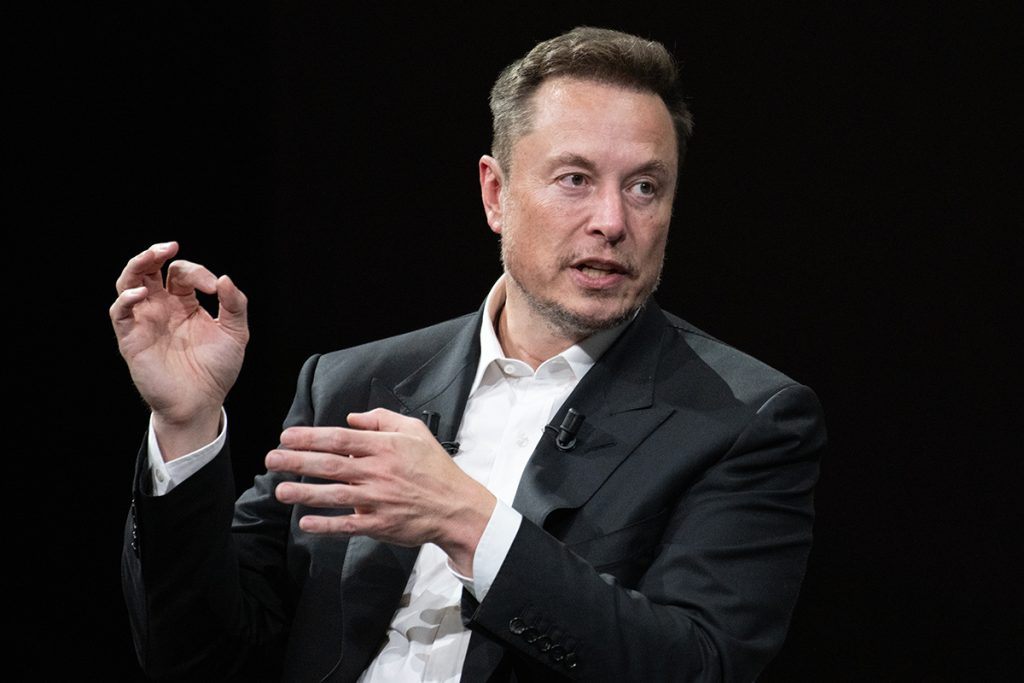The United Kingdom is grappling with a surge of anti-immigration riots, exacerbated by social media platforms and statements from influential figures. Elon Musk, CEO of Tesla and owner of X (formerly Twitter), has contributed to the tension by asserting that civil war is inevitable, attributing the violent demonstrations to mass migration and open borders.
The UK government has sharply criticized Musk’s comment, calling it unjustifiable. This remark underscores the growing issue of false information spread online, which has been linked to real-world violence. The government has vowed to hold accountable those responsible for both the riots and their online instigators.
In the past few days, the riots have resulted in significant damage across towns and cities in the UK. Public buildings have been vandalized, cars set on fire, and police officers attacked with bricks. Additionally, two Holiday Inn hotels housing asylum seekers were torched. Hundreds of rioters have been arrested in connection with these events.
The unrest was triggered by claims on social media from far-right groups. They falsely alleged that the perpetrator of a recent stabbing attack, which left three children dead, was a Muslim asylum seeker. This misinformation campaign sparked widespread outrage and violence against immigrants. Police later identified the suspect as 17-year-old Axel Rudakubana, a UK-born citizen, but the damage was already done.
Despite the police clarifying the suspect’s identity, false claims about the attack continued to spread online. The Institute for Strategic Dialogue (ISD) reported that by the afternoon following the attack, the false name had been mentioned over 30,000 times on X by more than 18,000 unique accounts. The ISD highlighted that platform algorithms played a role in amplifying the misinformation, exposing users to it even after the police debunked the claims.
The UK government has suggested that bots, potentially linked to state-backed actors, may have contributed to the spread of false information. Social media companies, despite having policies against hate speech and incitement to violence, have struggled with enforcement, particularly during crises when content moderation systems are overwhelmed.
Musk’s involvement in promoting incendiary content on X is particularly concerning. Under his ownership, X has relaxed its content moderation policies and reinstated several previously blocked accounts, including far-right figures like Tommy Robinson. These individuals have used the platform to stoke protests while criticizing violent attacks, further complicating efforts to maintain order.
The UK government has committed to prosecuting online criminality and is pressuring social media companies to take stronger action against the spread of false information. Home Secretary Yvette Cooper emphasized the urgent need to address the role of social media in amplifying misinformation and incitement to violence. Prime Minister Keir Starmer echoed this sentiment, stating that those involved in the riots, both in person and online, would face swift justice.
The government’s efforts to regulate social media platforms are encapsulated in the UK’s Online Safety Act, which imposes new duties on these companies to remove illegal content. The Act also criminalizes posting false information intended to cause significant harm. However, the legislation is not yet in effect as the regulator, Ofcom, is still developing codes of practice.
Once the law is implemented, Ofcom will have the authority to fine companies up to 10% of their global revenue for non-compliance. In preparation, Ofcom is already engaging with tech platforms to understand their actions against illegal content.
As the UK navigates this tumultuous period, the role of social media in fomenting unrest remains a critical issue. The government’s commitment to prosecuting both physical and online criminality marks a significant step towards addressing the underlying causes of the riots. However, the effectiveness of these measures will depend on the successful implementation and enforcement of new regulations.


